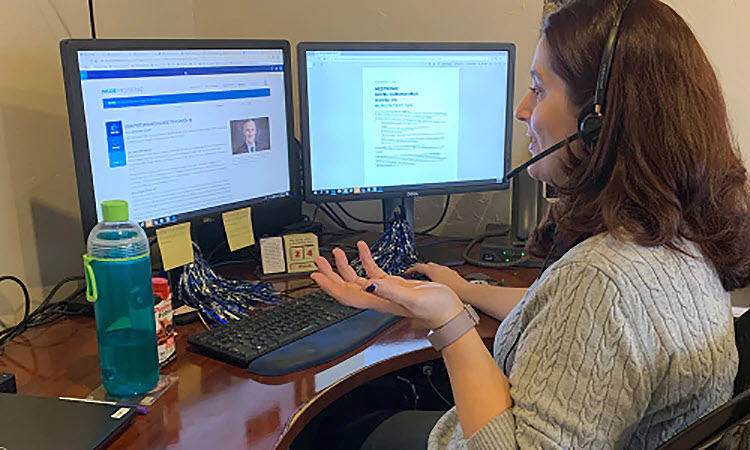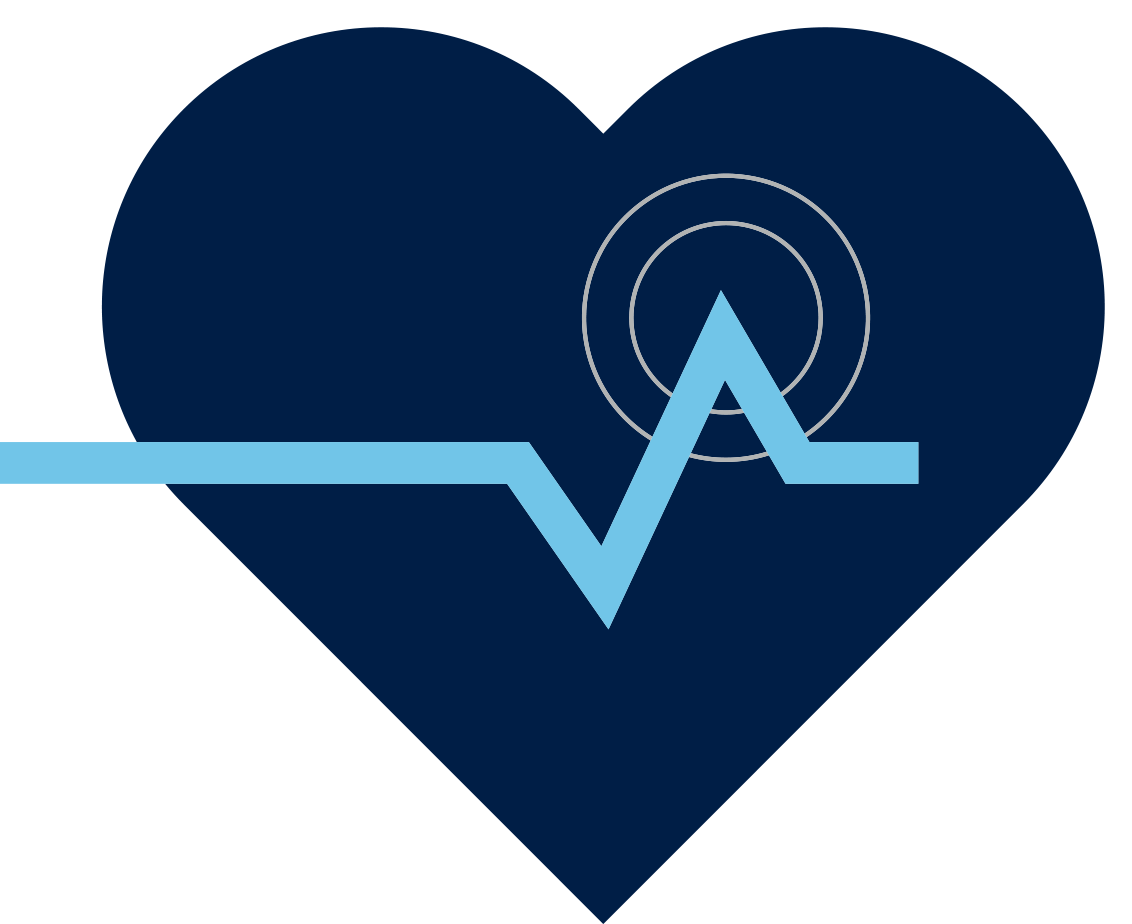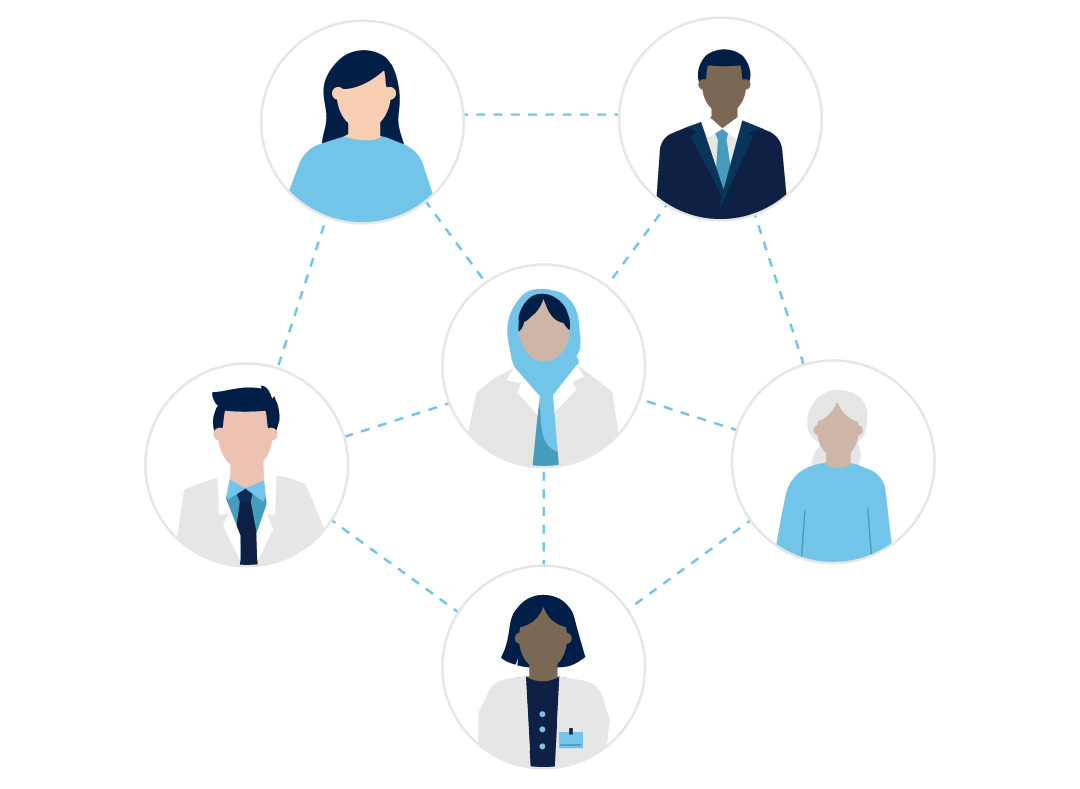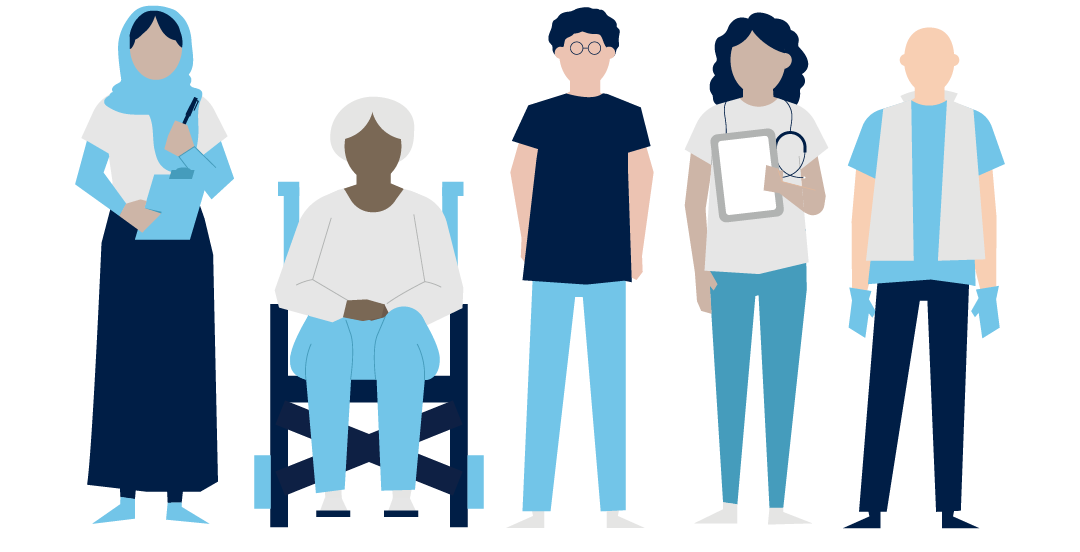
Stories
Virtual Training, Remote Monitoring Solutions Provide Safety and Support
Medtronic technology helps healthcare professionals and patients adapt
April 30, 2020 — As COVID-19 patients began flooding into hospitals around the world, it became apparent that healthcare providers would need additional ventilator training. In the age of social distancing, however, in-person training was no longer an option.
Fortunately, Medtronic had a solution.
In just over a week, the company worked quickly to train clinical sales specialists on how to conduct remote demonstrations. Today, those employees are virtually training healthcare professionals on how to use the company’s most advanced ventilators, which are critically needed during the pandemic.
To further extend remote training, Medtronic and other global ventilator manufacturers recently launched a mobile app for frontline medical providers to access a centralized repository of ventilator training. The Ventilator Training Alliance app provides free mobile access to video overviews, instruction manuals, and other training materials for hospital staff.
The rapid transition from in-person training to virtual training is just one way Medtronic technical experts are working to continue supporting healthcare professionals on the frontlines of the COVID-19 outbreak, in accordance with the public health and medical response of governmental agencies around the world.
“This global pandemic is reshaping our world, emphasizing the need for solutions that bridge the divide between healthcare professionals and the technology they rely on to treat patients,” said Vafa Jamali, senior vice president and president, Respiratory, Gastrointestinal & Informatics for the Minimally Invasive Therapies Group. “Medtronic plays a leading role in bringing this technology to the forefront, and our work has become even more important as a result of COVID-19.”
This global pandemic is reshaping our world, emphasizing the need for solutions that bridge the divide between healthcare professionals and the technology they rely on to treat patients.
Vafa Jamali, senior vice president and president, Respiratory, Gastrointestinal & Informatics, Medtronic
HELPING PATIENTS AND PROVIDERS MAINTAIN A SAFE DISTANCE
Remote solutions play an important role in reducing the spread of the virus by helping patients and practitioners maintain social distancing.
For those more susceptible to COVID-19 — like individuals with diabetes — Medtronic has developed protocols that can help patients avoid unnecessary trips to hospitals and clinics. In the U.S., insulin pump training is now being conducted 100 percent online. Prior to the pandemic, only about five to 10 percent of that training was conducted remotely, and typically required an in-office visit with a healthcare provider.
In Australia, the pandemic expedited the country’s first remote start of an insulin pump under the new Telehealth COVID-19 Guidance. The pump belonged to a 10-year-old girl living with Type 1 diabetes and there are now plans to conduct online training for other patients in the country.
In March, Medtronic launched a suite of new remote monitoring solutions to help overburdened health systems. Under the COVID-19 Virtual Care Evaluation and Monitoring solution, patients concerned about COVID-19 use a virtual assistant to complete an online symptom survey. If their symptoms warrant review, the patient is connected to a command center staffed by a team of registered nurses to help determine whether additional intervention is needed.

“Medtronic employees who would normally be working inside hospitals and healthcare clinics are quickly devising innovative remote solutions to address the tremendous challenges our global healthcare systems face as result of the COVID-19 pandemic,” said John Liddicoat, M.D., executive vice president and president, Medtronic Americas region. “In keeping with our Mission, the safety of patients, doctors, nurses, and our employees remains a top priority.”
CONNECTING CLINICIANS, VIRTUALLY
In addition to offering new virtual training, Medtronic is supporting healthcare professionals by bringing them together in online forums to discuss ways to stay safe during the COVID-19 pandemic.
Recently, Medtronic partnered with the American Rhinologic Society (ARS) to launch a series of global live webcasts for ear, nose and throat (ENT) clinicians. During the first forum, participants from around the world discussed ways to mitigate COVID-19 infection risks, which are significant for otolaryngologists since they tend to work in areas of the body where the virus is known to propagate. Due to the overwhelming response to the first forum — more than 1,400 participants from 45 countries tuned in — the ARS now has a four-event series planned.
A Medtronic Surgical Innovations team in China is partnering with Dingxiangyuan, the country’s premier online physician community, to offer online courses about protection against COVID-19 infections in operating rooms. Twelve modules were developed on topics that included surgical protocols, nurse management, and enhanced sterilization. Each module drew an average of 1,500 viewers.
TURNING TO TRUSTED TOOLS
While the public health and medical response to the pandemic requires new approaches to supporting healthcare professionals, sometimes the most helpful solutions are already in place.
More than 15 years ago, CentraCare Heart and Vascular Center in St. Cloud, Minn. made the transition to remote monitoring for patients living with Medtronic cardiac devices. Today, the clinic remotely monitors 5,780 patients, many of whom would be considered high risk for COVID-19.
Laura Van Heel, clinical cardiology supervisor for CentraCare, said switching to remote monitoring for about 98 percent of the clinic’s patients has positioned them to endure the challenges caused by COVID-19. Most of the nurses and technicians she supervises worked from home before the outbreak and they remain there today.
“I feel like we are ahead of the game,” she said. “We are still monitoring our patients who are staying safe at home and I know my staff is safe. That kind of peace of mind is very valuable right now."


